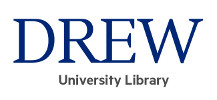 Library Guides
Library Guides Library Guides
Library GuidesSome Questions to ask:
More suggestions:
"Evaluating Sources" from Perdue's Online Writing Lab

Different news outlets-- and different subject area publications-- address a topic in different ways. In some cases, that is due to ideological leanings (usually of their target readership)-- in other, it's due to the very nature of the subject. Time Magazine, The Wall Street Journal, English Teacher, the Communications of the Association for Computing Machinery, and Nature will all address a concept in different ways.
The information to the left is based on what is called a "CRAPP" analysis, where the user looks at various aspects of the work in front of them to evaluate it.
However, most successful fact checkers do what has been dubbed: 'horizontal fact checking"-- looking for other sources, preferably trusted ones, that cover the same material and check to see if the information lines up. Like science, the best research is reproducible. (Though watch carefully fo sources that all may be referencing the same original source!)
Questions? Need Help? Email reference@drew.edu
Drew University Library, http://www.drew.edu/library